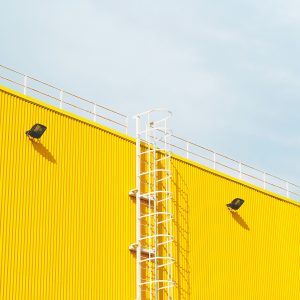Chemical Compatibility and Physical Compatibility of Filtration Systems
Filtration systems eliminate the harmful impurities in water which reduces health issues and extends the life of appliances. It also helps to remove lingering odors and bad tastes from the tap water.
However, this process is not perfect as filtered water lacks some chemicals which are essential to human body’s defense system. Moreover, the filtered water is too Commercial Water Filter pure and may lack small quantity elements that are helpful in the process of the human’s metabolic growth.
Chemical Compatibility
Chemical compatibility refers to the general stability of a material with the liquid or gas that it will be exposed to. A material’s resistance to chemicals depends on a variety of factors such as its surface area, thickness, and temperature. It is important to consider all of these factors when choosing a filter for an application.
When it comes to selecting a chemically compatible filter, it is imperative to determine what kind of chemicals will be flowing through the system and then perform comprehensive research to ensure that all components of the system are in fact, chemically compatible with the chemicals that will be passing through the filtering process. Failure to do so can result in degradation of the filter which will allow contaminants to continue to flow through the system.
For instance, certain chemicals can cause corrosive reactions with metallic materials such as metal and steel. Other chemicals may promote vapor phase corrosion, elastomer degradation and more.
Chemical compatibility tests can be performed to ensure that the material used in a filtration system is resistant to a variety of different chemicals, both in liquid and gas form. These test are also important for determining the longevity of the filter as well as the overall system’s performance in a given environment. The test results are compared to the chemical resistance chart of the specific filtration system that will be used.
Physical Compatibility
The physical compatibility of a filtering system has to do with its shape, size and layout. This aspect is very important since it will influence how the system can be used and how much space is needed for it to function properly. Filtration systems come in a wide variety of shapes and sizes from single to multi bag systems. It is best to take the time and explore all of the options before making a decision.
Another important consideration is the operating conditions that a filter will be exposed to. The temperature and pressure of the environment will have a direct impact on what kind of filtration system will be most effective. For example, if the liquid to be filtered is hotter than 140degF a metal system would be more appropriate than a plastic one. Likewise, if the pressure of the environment is higher than the filter can handle a clog could result.
There are four critical components that are required for filtration to happen. These are the filter medium, the fluid that water dispenser for business has solids in suspension and a force usually created by the difference between two points. The filter medium can be natural, like a river environment or mechanical, such as a home water filtration system. Once filtration has taken place, the particles that were caught in the medium are trapped inside of a cake. The system should include special provisions for the removal, washing and drying of the cake so that it does not contaminate the process of filtration.
Economical Compatibility
A filtering system is a very important device that helps in keeping fluids like water and chemicals free of contaminants. It is used in a wide variety of industrial applications like pharmaceutical processing and food manufacturing. It is an integral part of a larger system and selecting the right one requires careful consideration. Its selection should take into account factors such as particle size of contaminants, the operating conditions of the system and chemical compatibility with the liquid to be worked with. It should also take into account the physical layout of the system.
Investing in state-of-the-art filters increases the percentage purity of tap water and saves money on having to purchase bottled water. In addition, it helps in reducing the risk of Legionellosis and other dangerous diseases associated with unsafe drinking water. However, the initial installation of these systems can be expensive since they require specialized mechanisms that are costly to manufacture.
In order to reduce the cost of a water filtration system, it is necessary to conduct a thorough cost benefit analysis before making any investment. This analysis should consider the installation costs, water, energy and labor savings. It should also address issues related to equipment failure and maintenance. The results of this analysis will allow Federal agencies to make an informed decision on whether to invest in a water filtration system.



